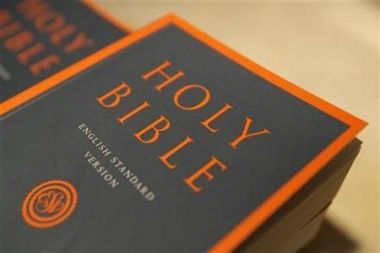Worshipper, worker and Christian convert: 3 things Christians can learn from Lydia in the Bible
Lydia – a worshipper of God and a tradeswoman – is often cited as the first European convert to Christianity. Her story is recorded in Acts 16:

"On the Sabbath we went outside the city gate to the river, where we expected to find a place of prayer. We sat down and began to speak to the women who had gathered there. One of those listening was a woman from the city of Thyatira named Lydia, a dealer in purple cloth. She was a worshipper of God. The Lord opened her heart to respond to Paul's message. When she and the members of her household were baptised, she invited us to her home. 'If you consider me a believer in the Lord,' she said, 'come and stay at my house.' And she persuaded us." (Acts 16:12-15)
Just a few verses are dedicated to Lydia, but her story is one of incredible significance in early church history.
Having planned to just serve Asia, Paul had a vision of a man from Macedonia asking him to come there and help them. He obeyed. He first went to Phillipi, the capital of the area, where he met Lydia along with a group of women. She becomes the first recorded European convert to Christ.
Lydia was a "seller of purple" – a merchant of purple dye – who lived in the trading city of Phillipi, but she was from the city of Thyatria, located in the middle of modern day Turkey.
She would gather with other women outside the city walls, where "prayer was wont to be made". She is a woman of faith, described as one who "worshipped God" and "whose ear the Lord had opened" even before she met Paul and heard the gospel from him.
When she did meet Paul and Silas and she heard the Good News, she and her whole household were baptised. She then opened her home to them both saying, "If you consider me a believer in the Lord, come and stay at my house." Which they did.
What can we learn from Lydia?
1. God's plan is better than our own
God interrupted Paul's plans and redirected him towards where he wanted him to go. And Paul allowed him to. In following God's directions, Paul was greatly rewarded in meeting Lydia, a woman with an open heart. It was not with "wise and persuasive words" that Paul persuaded Lydia of the truth of Jesus Christ, but rather it was through God's preparation that she was ready to hear the truth and have it set her free.
When we are willing to heed God's interruptions to our lives, we ready ourselves for his heavenly provision.
2. God won't leave us in the dark
Before ever meeting Paul, Lydia worshipped God. Her face was turned towards his, despite having never heard the story of Jesus. Her desire for God was not one that he allowed to go unfulfilled. Her open heart and posture of worship were not left without a response.
God will not leave those who seek him in the dark, but will bring people to share in the light that has yet to be revealed. If our posture is towards him, he will hear our prayers.
3. Women are powerful
Lydia was a woman of business and a woman of worship. She was independently minded, had her own household – which would either refer to her family or might include servants – and responded to the call of God. Whether she was married, widowed or single (the Bible doesn't say), she both knew God and chose to follow him, being baptised and leading her household to do the same. Paul and Silas believed her testimony of faith, accepting the condition of her invitation into her home. These men of God trusted this woman of God.
By this very act of hospitality, Lydia showed an understanding of what it is to follow Christ – putting her faith into action by giving shelter to her Lord's servants. And it didn't stop there. She continued to have "brothers and sisters" meet in her home and hear about Jesus (Acts 16:40). She hosted church in her home.
Lydia was a woman of authority who knew what it was to follow God and serve his people. Her story reveals that God trusts women, speaks to them and empowers them.











